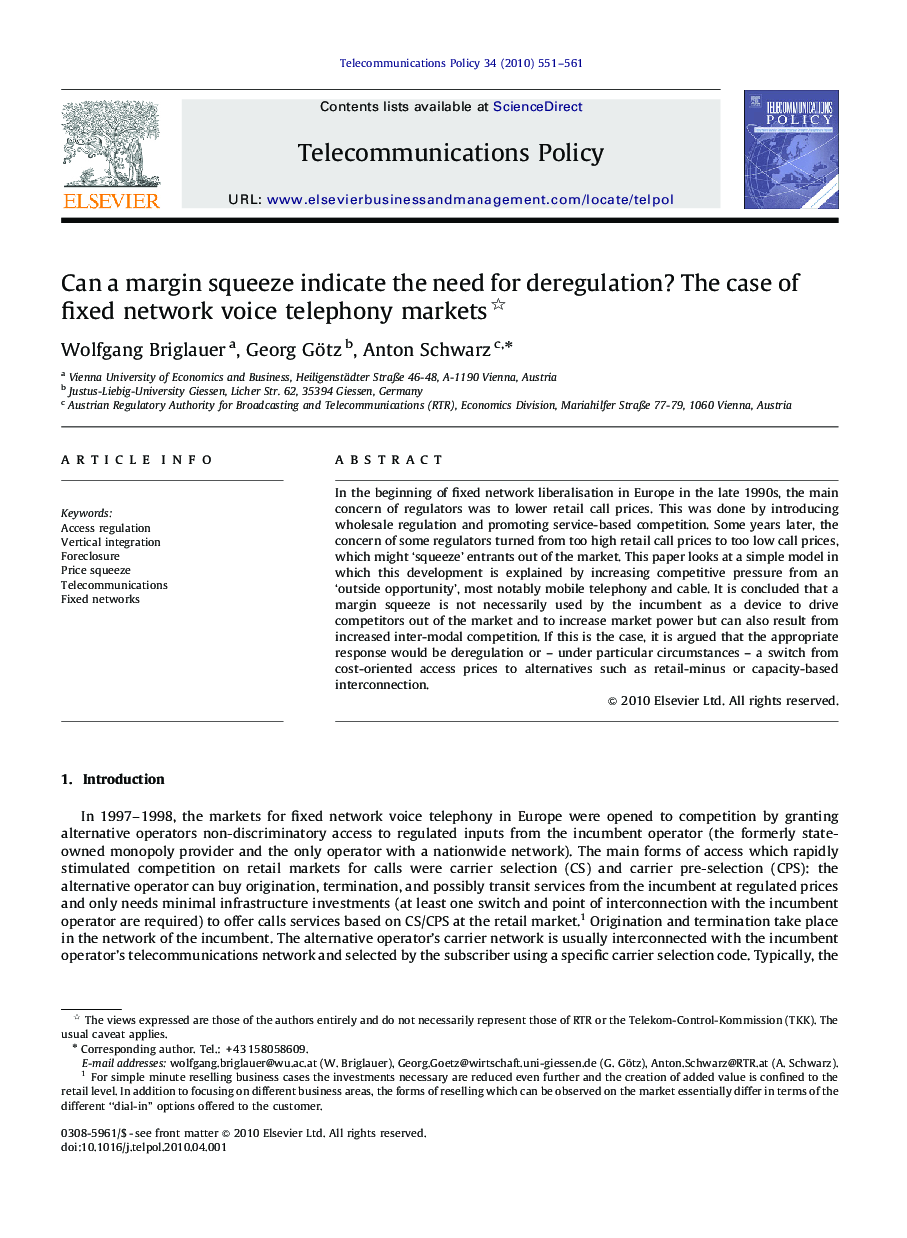| Article ID | Journal | Published Year | Pages | File Type |
|---|---|---|---|---|
| 557398 | Telecommunications Policy | 2010 | 11 Pages |
In the beginning of fixed network liberalisation in Europe in the late 1990s, the main concern of regulators was to lower retail call prices. This was done by introducing wholesale regulation and promoting service-based competition. Some years later, the concern of some regulators turned from too high retail call prices to too low call prices, which might ‘squeeze’ entrants out of the market. This paper looks at a simple model in which this development is explained by increasing competitive pressure from an ‘outside opportunity’, most notably mobile telephony and cable. It is concluded that a margin squeeze is not necessarily used by the incumbent as a device to drive competitors out of the market and to increase market power but can also result from increased inter-modal competition. If this is the case, it is argued that the appropriate response would be deregulation or – under particular circumstances – a switch from cost-oriented access prices to alternatives such as retail-minus or capacity-based interconnection.
